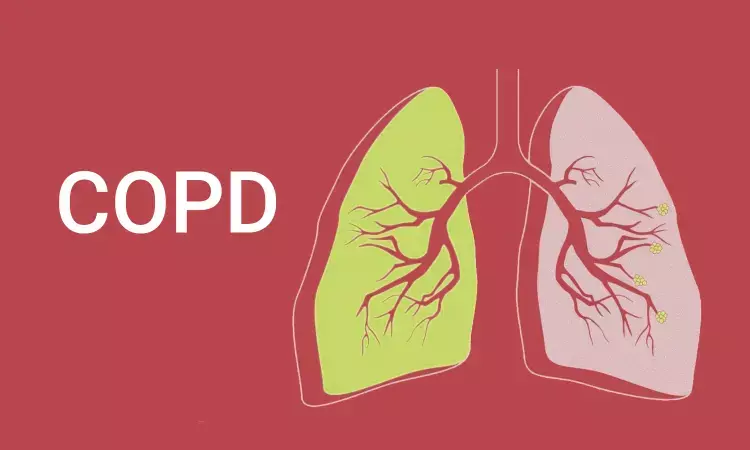- Home
- Medical news & Guidelines
- Anesthesiology
- Cardiology and CTVS
- Critical Care
- Dentistry
- Dermatology
- Diabetes and Endocrinology
- ENT
- Gastroenterology
- Medicine
- Nephrology
- Neurology
- Obstretics-Gynaecology
- Oncology
- Ophthalmology
- Orthopaedics
- Pediatrics-Neonatology
- Psychiatry
- Pulmonology
- Radiology
- Surgery
- Urology
- Laboratory Medicine
- Diet
- Nursing
- Paramedical
- Physiotherapy
- Health news
- Fact Check
- Bone Health Fact Check
- Brain Health Fact Check
- Cancer Related Fact Check
- Child Care Fact Check
- Dental and oral health fact check
- Diabetes and metabolic health fact check
- Diet and Nutrition Fact Check
- Eye and ENT Care Fact Check
- Fitness fact check
- Gut health fact check
- Heart health fact check
- Kidney health fact check
- Medical education fact check
- Men's health fact check
- Respiratory fact check
- Skin and hair care fact check
- Vaccine and Immunization fact check
- Women's health fact check
- AYUSH
- State News
- Andaman and Nicobar Islands
- Andhra Pradesh
- Arunachal Pradesh
- Assam
- Bihar
- Chandigarh
- Chattisgarh
- Dadra and Nagar Haveli
- Daman and Diu
- Delhi
- Goa
- Gujarat
- Haryana
- Himachal Pradesh
- Jammu & Kashmir
- Jharkhand
- Karnataka
- Kerala
- Ladakh
- Lakshadweep
- Madhya Pradesh
- Maharashtra
- Manipur
- Meghalaya
- Mizoram
- Nagaland
- Odisha
- Puducherry
- Punjab
- Rajasthan
- Sikkim
- Tamil Nadu
- Telangana
- Tripura
- Uttar Pradesh
- Uttrakhand
- West Bengal
- Medical Education
- Industry
Dual LAMA/LABA or triple therapy may raise CV risk among COPD patients

CHINA: According to a research reported in The European Respiratory Journal, dual LAMA/LABA or triple therapy elevates cardiovascular risk in COPD patients compared to ICS/LABA.
A series of long-term lung diseases that impair breathing are collectively referred to as chronic obstructive pulmonary disease (COPD). Chronic bronchitis and emphysema are both components of COPD. COPD sufferers may benefit from medication with long-acting muscarinic receptor antagonists (LAMA). Long-acting muscarinic antagonist/long-acting 2 agonist (LAMA/LABA) combination therapy dramatically improves clinical symptoms, overall health, and lowers the risk of severity in patients with chronic obstructive pulmonary disease, according to high-quality data from randomized controlled trials (RCTs). Nevertheless, there is rising concern that LAMA/LABA medication could make COPD patients more susceptible to cardiovascular illness.
The purpose of this study was to examine whether LAMA/LABA combination medication affects COPD patients' risk of cardiovascular disease.
For this objective, 51 RCTs with 91,021 participants were examined. To find pertinent RCTs of LAMA/LABA or LABA/LAMA/inhaled corticosteroids (ICS) for the therapy of patients with COPD that documented cardiovascular outcomes, two reviewers separately searched EMBASE, PubMed, and the Cochrane Library. MACE (major adverse cardiovascular events), which included cardiovascular death, myocardial infarction (MI), and stroke, was the main result.
Conclusive points of the research:
- In comparison to ICS/LABA, the risks of MACE were considerably higher with dual LAMA/LABA (1.6% against 1.3%; RR, 1.42, 95% CI, 1.11-1.81) and triple treatment (1.6% versus 1.4%; RR, 1.29, 95% CI, 1.03-1.61).
- The RCTs where the average underlying baseline hazard for MACE was >1%/year showed the largest elevated risk.
- Dual LAMA/LABA therapy did not raise the risk of MACE when compared to LAMA only, LABA only, or placebo, though these comparisons might not have had enough statistical power.
The authors came to the conclusion that these results should be taken into account in light of the incremental benefits of these medications on COPD patients' symptoms and exacerbation rates, particularly in those with a MACE risk of >1%/year.
REFERENCE
Mingjin Yang, Yishi Li, Youfan Jiang, Shuliang Guo, Jian-Qing He, Don D Sin, Combination therapy with long-acting bronchodilators and the risk of major adverse cardiovascular events in patients with chronic obstructive pulmonary disease: a systematic review and meta-analysis,European Respiratory Journal Jan 2022, 2200302; DOI: 10.1183/13993003.00302-2022
Dr Kamal Kant Kohli-MBBS, DTCD- a chest specialist with more than 30 years of practice and a flair for writing clinical articles, Dr Kamal Kant Kohli joined Medical Dialogues as a Chief Editor of Medical News. Besides writing articles, as an editor, he proofreads and verifies all the medical content published on Medical Dialogues including those coming from journals, studies,medical conferences,guidelines etc. Email: drkohli@medicaldialogues.in. Contact no. 011-43720751


